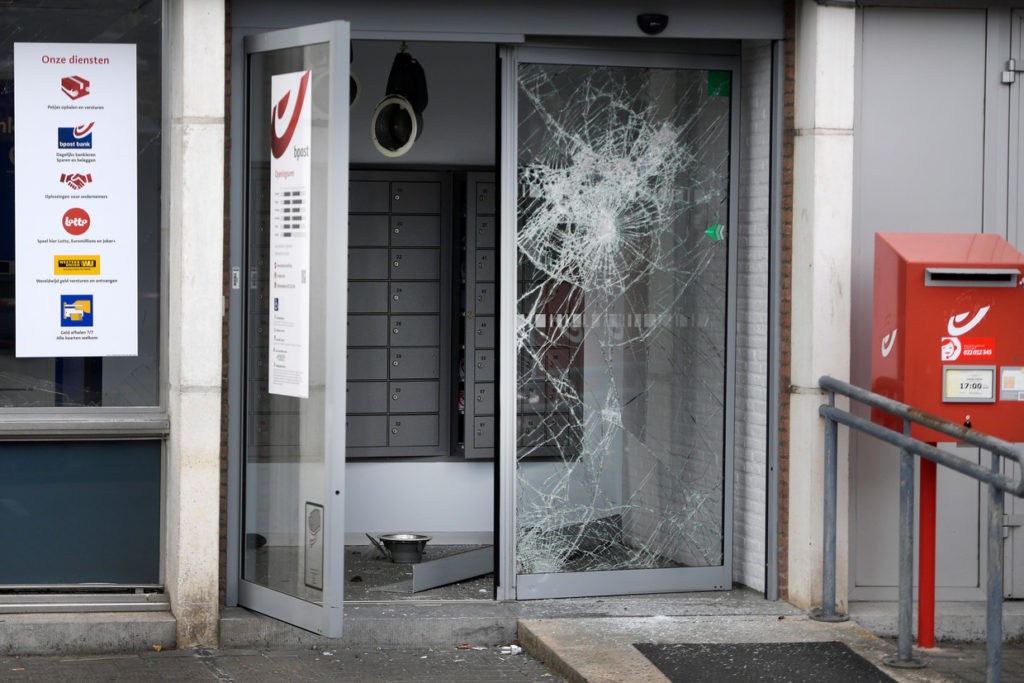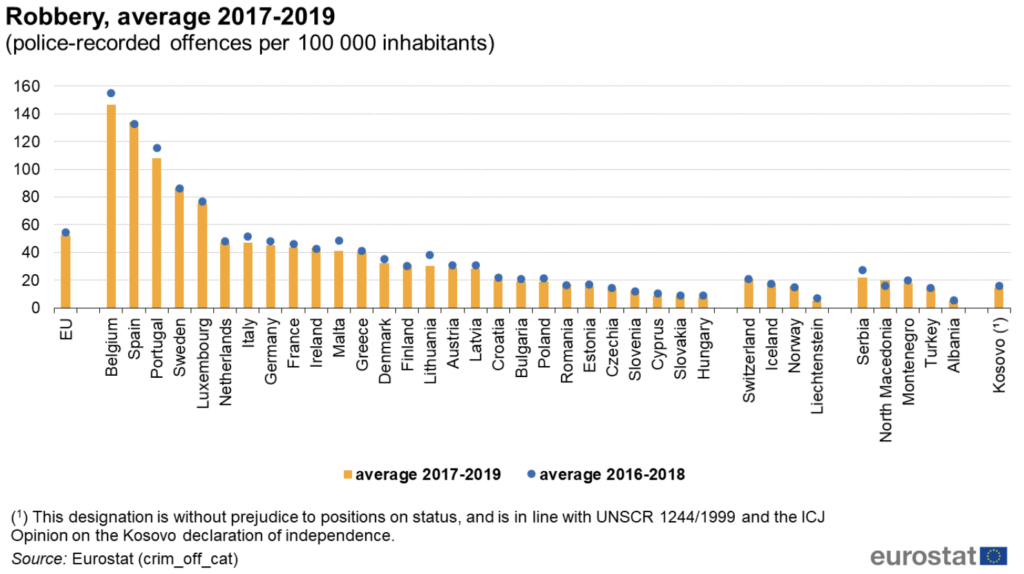Belgium has three times the number of robberies per 100,000 residents than the European average. However, the figures also highlight the willingness in Belgium to report such cases.
On average 146.7 violent robberies were registered per 100,000 every year, according to figures from 2017 - 2019 and published by Eurostat, the EU's office for statistics. The EU average is just under 60. This sees Belgium top the list in Europe, followed by Spain (134.1) and Portugal (108).
Yearly reported robberies in Europe is decreasing – between 2016 and 2019, police-recorded robberies in the EU fell by 11% to 229,100. Similarly in Belgium, there has been a large decrease since 2010 when some 220 robberies took place per 100,000 inhabitants.
The data puts Hungary at the bottom of the list, with barely seven violent robberies per 100,000 inhabitants. Although the Eurostat data is reliable, it is based on the number of officially-recorded muggings, not the number that actually takes place which could be much higher in some countries.
Driven by insurance claims
Eurostat stressed that these official statistics mainly reflect how the authorities register and handle cases. "It is fair to assume that the reporting rate is high when a police record is required to support an insurance claim (e.g. car theft and burglary)."
Els Enhus – professor in Criminology at the VUB who researched armed robberies extensively – says that the Belgian insurance policy could be one of the main reasons for the high level of recorded cases.
"Insurance is a driving factor to reporting a crime: if you are insured then, of course, you will report an incident," she told The Brussels Times.
Related News
- Justice: New rules planned on time-limits on prosecutions
- €250 on the spot fines for bicycle thieves
- Police find €7 million worth of cocaine in port of Ghent
Enhus stressed that this is particularly true given that robberies in Belgium more often concern relatively small targets. "The big targets such as the banks and the post offices where you can get a lot of money have been virtually excluded from this story."
"Now it is mainly places like petrol stations, small shops and pharmacies. This is because big targets have such good security that it became almost impossible to rob them."
She stressed that the figures say very little about the scale of the robberies. The number of burglaries in the EU also dropped to the lowest level since 2010. Police-recorded burglaries numbered just over 1.5 million in 2019, down 28 % from 2014. Thefts numbered around 4.8 million, again a decrease of 28 % compared to 2014.
Declining homicides, rise in assaults
The Eurostat figures also showed 2019 to have the lowest number of intentional homicides since 2008 (3,875 murders were reported) – a 32% decrease. In Belgium, the number decreased from 204 in 2008 to 145 in 2019.
Meanwhile, physical assault in the EU reached a record-high in 2019, with some 642,500 incidents recorded – up by 11% since 2014. As laws regarding what is considered assault differ per country, the number of recorded cases varies widely across Europe.
The trend was generally decreasing until 2014 but has since increased. In 16 of the 26 countries that provided data, assaults had increased from the previous year.
In 2019, the number of sexual violence crimes in the EU also reached its highest level since 2013. Police-recorded sexual violence crimes numbered around 178,500 in 2019, up 6% from the previous year. So too the number of unlawful acts involving illicit drugs, which was at its highest since 2008 with more than 1.1 million recorded cases.


